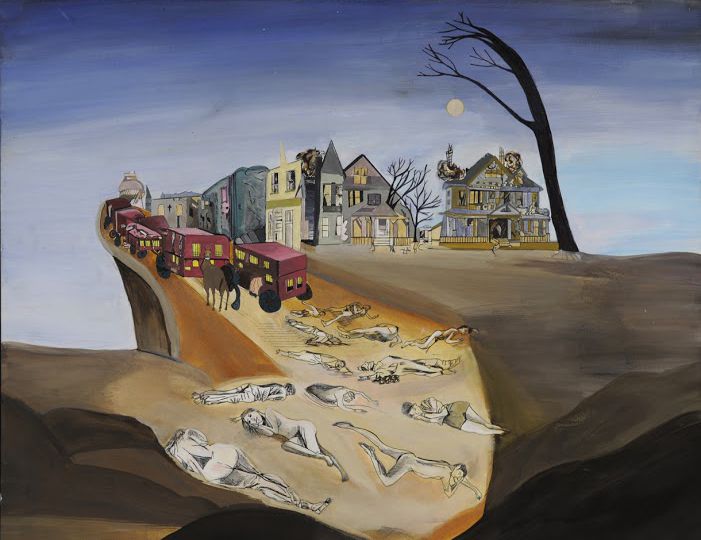
“Development is about transforming the lives of people, not just transforming economies.”
― Joseph E. Stiglitz, Making Globalization Work
Development can be a very confusing term. It is used pretty often — in politics, in policy, in NGO-speak, in the news and even in our homes — but not everyone really knows how this shapes their lives. Does ‘development’ mean economic reform that will bring more capital into the country? Does that translate into benefits for people in their daily lives? Do some people benefit more than others do? Should development include ‘socialist’ reforms or should it take the ‘neoliberal’ route? Are we developed when our GDP increases? Are we developed if our laws become inclusive and rights-based? Are we developed when we have good infrastructure to support public transport, healthcare, schools? Who must build this for us?
Yes, development is a confusing term, and as the world debates agendas and economic reforms that will ‘eliminate poverty’ and bring education, food, housing, healthcare, jobs, transportation and much more ‘for all,’ we are faced with many questions. One that concerns us in this issue, is how the words ‘for all’ translate into policies that centralise gender equality and sexual and reproductive rights. As the United Nations Millennium Development Goals are about to be superseded by the Post-2015 Development Agenda there is one question that weighs heavily on us all: how can we work towards sustainable development ‘for all’ when so many people become marginalised because of their gender identities and sexualities?
The Issue in Focus by Sivananthi Thenenthiran takes the bull by the horns and introduces us to the Post-2015 Development Agenda. While she flags the fact that the targets currently being debated could seem like “no-brainers”, for sexual and reproductive rights activists, she also walks us through the process of how these targets are formulated, giving us valuable information on how to engage with this agenda in order to ensure maximum benefits for all. The article has been translated into Hindi by Dipika Srivastava.
In the interview Marevic ‘Bing’ Parcon of the Women’s Global Network for Reproductive Rights, explains what this new Agenda means for sexual and reproductive activists, explaining in particular the problems around language and the idea of inclusion.
Sometimes it is hard to follow what exactly we have achieved under the aegis of the Millennium Development Goals, and how the targets in the Post-2015 Agenda compare. Under the Review section, Sai Jyoti Racherla does a comparative review of the MDGs and the new Agenda to underline the gaps, the failed promises and also the possibilities in the Asia region.
Under Voices, our writers ask if the Agenda is truly inclusive. Kristin Francoeur, examines the inadequacy of the term ‘family planning’ and discusses specifically why the exclusion of abortion is a major setback for women everywhere. Sarah Soysa draws from her personal experience to speak about youth participation and the need to provide young people with the tools they need to amplify their voices and stand up for themselves.
Intergovernmental agendas are often the mould within which national policies are cast. Shubha Kayastha examines the complex relationship between people, the nation-state and international development agendas, as she reads the first draft of Nepal’s new constitution through a feminist lens. She poses a concern that will echo in the minds of activists everywhere: if the constitution of a country will not grant equal status to women, how does that affect and shape the nation’s participation in development agendas that promise equal progress for all?
Transgender politics and concerns are not always spelled out in these international agendas, allowing foreign or national policy to ignore the concerns of thousands of people across the world. In the Video Page, we bring you a video recorded in Chennai, where trans people articulate how marginalisation affects them in their daily lives, forming roadblocks in their access to everything — from education and employment to housing, transportation and healthcare — that is promised under these development agendas.
We have two posts under Brushstrokes. It is not always easy to understand what the MDGs promised or what they achieved, and so the first post curates posters put together by United Nations to underline the gains made so far. The second gives an overview of what the UN promises young people in relation to ‘meaningful participation.’
We have four corners this time: a Campaign Corner with information on the September 28 campaign on access to safe abortion, a Social Media corner giving you everything you need to know about the Instagram photo contest trending now under the hashtag #bethechange. This is organised by Deutsche Stiftung Weltbevoelkerung, an international development and advocacy organisation. In the Book Corner, we have information about Hamid Dabashi’s book, The Arab Spring: The End of Postcolonialism, and in the FAQ corner we have information about the 17 Sustainable Development goals that will shape development for the next 15 years.
In the Blog-roll we have two articles, one on the need to include people of all ages, and the other on the need for the international agencies to take stances that include people of all social classes.
Next month, we have something fun headed your way. We have a menu of mouthwatering articles on ‘Food, Drink and Sexuality!’
Until then,
Happy reading,
The TARSHI Team.
Picture courtesy: The NYC Affiliate of the Scholastic Art & Writing Awards